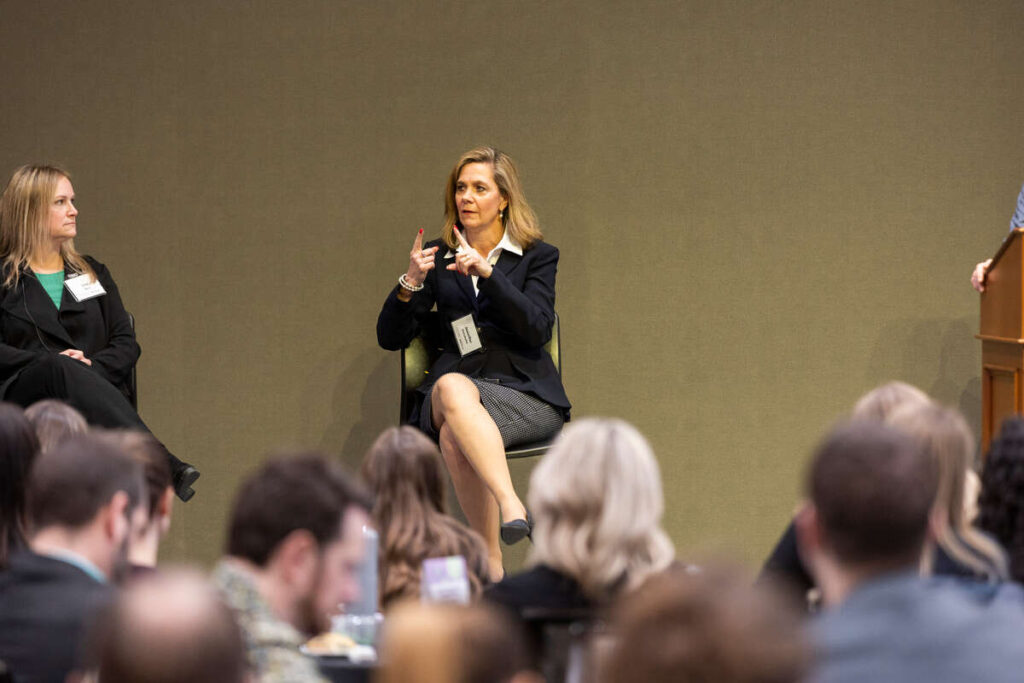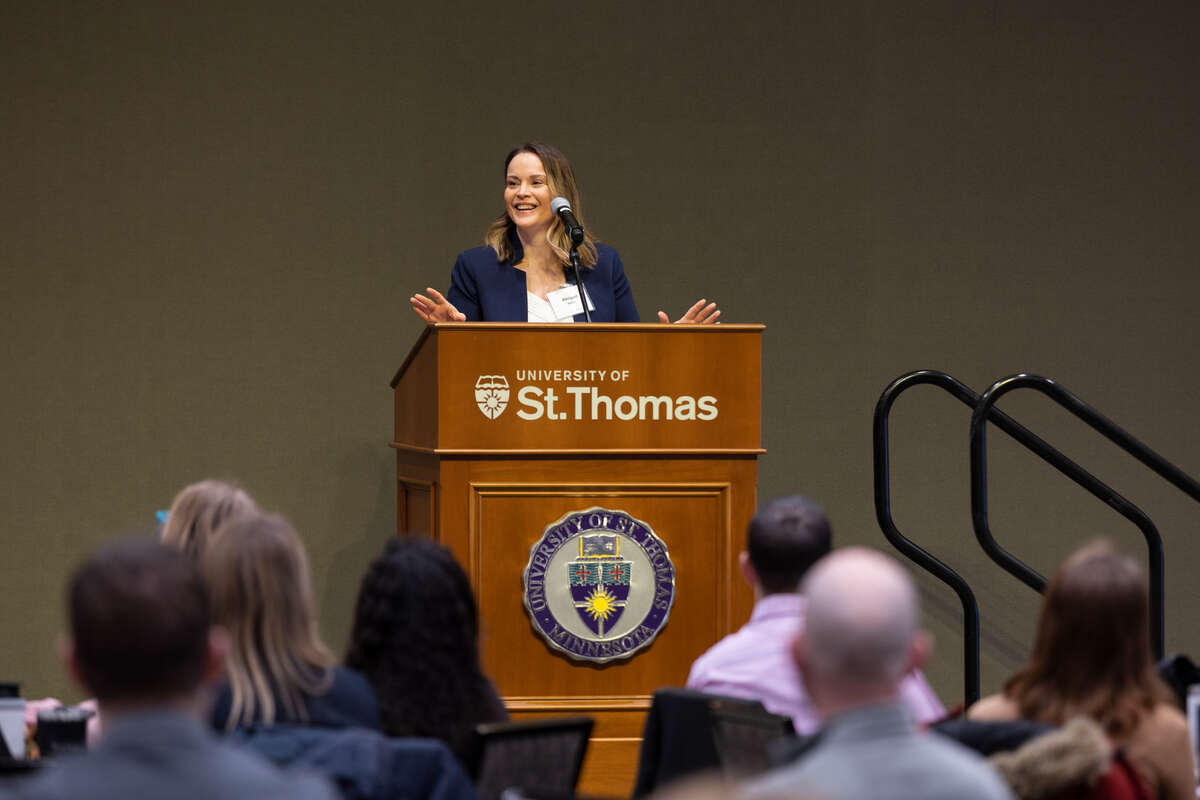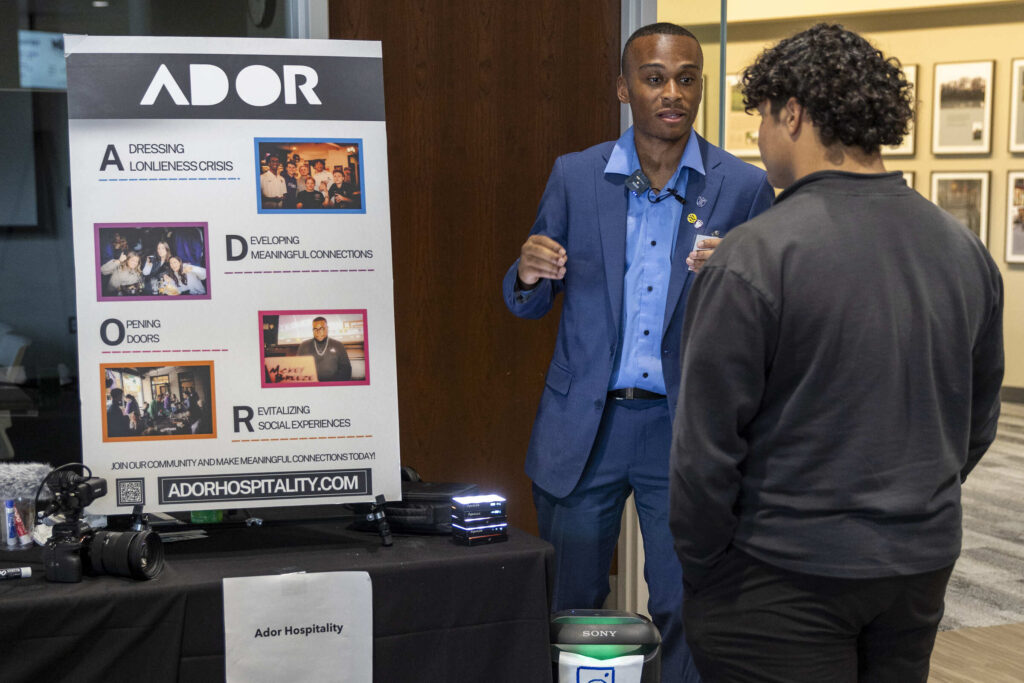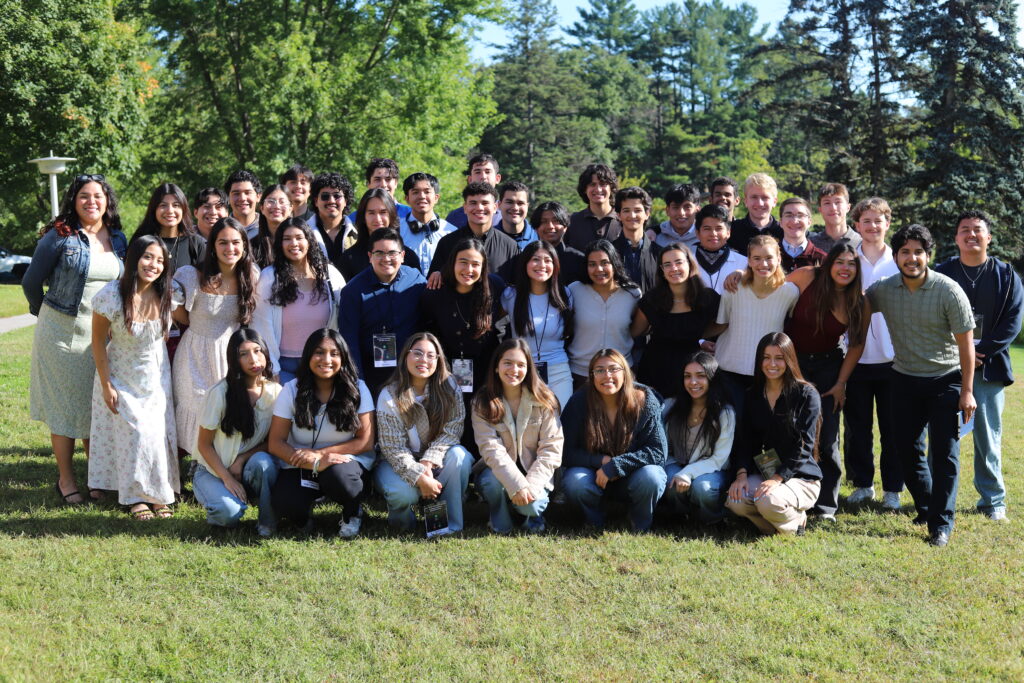The University of St. Thomas was buzzing as health care professionals and thought leaders gathered March 2 for a day of networking and learning on the St. Paul campus at the annual Future of Health Care Conference.
Hosted by the Opus College of Business Health Care MBA, the conference featured 15 high-profile speakers and alumni who led future-focused discussions on innovations and challenges facing today’s health care sector. Celebrating its 15th year, the hybrid event drew more than 160 attendees.
“I believe the record turnout was in part due to people’s desire to be together again with colleagues after the last three years of feeling isolated,” said event emcee Abbie Miller, MD, MBA, CHCQM, chief medical officer and senior vice president at PreferredOne.
This year’s health care theme, “Embracing the Change,” spoke to the resilience in an industry challenged by economics, staffing and dynamic changes in consumer preferences.
Health care industry leaders spoke on topics about the future of nursing, health care policy, consumer personalization, and rethinking place between physical and digital for the hospital of the future.
An overarching theme emerged around how health care and society has changed through the pandemic. Here are a few observations from the conference.
Technology is an extension, not a replacement, for patient care.
The pandemic exposed some weaknesses, such as nursing staff shortages, inadequate mental health care and inequity, but also highlighted strengths like innovation and collaboration.
For example, technology can be used to extend and expand current staff resources through the use of automated “scribes” and AI, as well as delivering equitable health care.
Multiple comments were also made on how the hospital of the future is a flexible place to be able to deliver the care needed by the community, including outpatient and home-based levels of care.
A speaker on the Future of Nursing panel explained: “Virtual care doesn’t mean there’s never in-person (care). It’s about being more efficient with the way you’re providing care.”
Meaningful investments are necessary to advance digital health equity.
“The biggest problems in health care can be solved through innovation, but it has to be done (in a way) that simultaneously advances us without creating more health equity gaps,” said speaker Dr. Melissa Clarke, who highlighted the role of equity in digital health and health care innovation.

A lively discussion among health care system CEOs about the future of hospitals also emphasized the need for collaboration and partnerships to advance health care while mitigating disparity factors.
“It’s bringing in partners, innovators and community members that our patient population cares about and needs access to,” said Jennifer DeCubellis, CEO of Hennepin Healthcare. “Creating a campus that’s built by the community, for the community.”
Direct and open industry engagement is crucial for the future of health care.
Event moderator and adjunct professor Kjrk Reyerson explained why the conference is a great opportunity for students and professionals alike to exchange ideas and knowledge across the industry.
“In the dynamic, post-pandemic era of health care delivery, (the Future of Health Care Conference) provides a source of industry inspiration and guidance as we continue to evolve the topic of health care innovation,” he said.
A special thank-you to all industry presenters, event moderators and organizers for this year’s Future of Health Care Conference.







